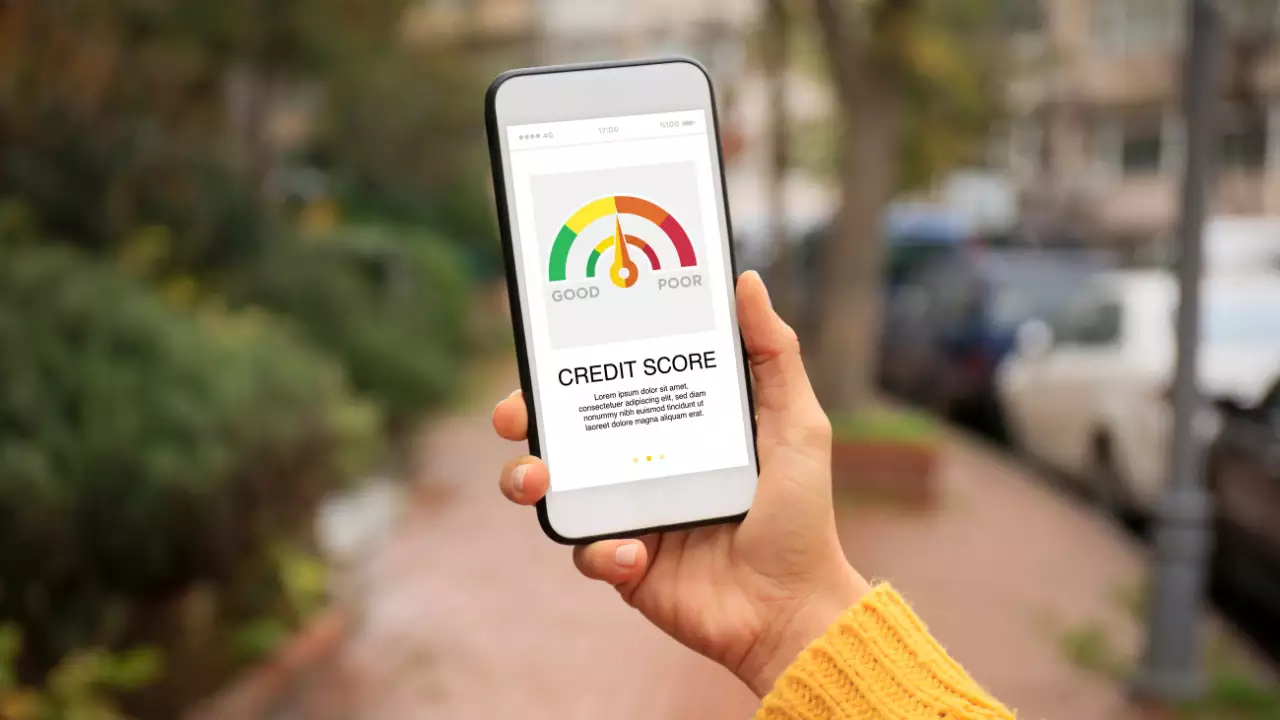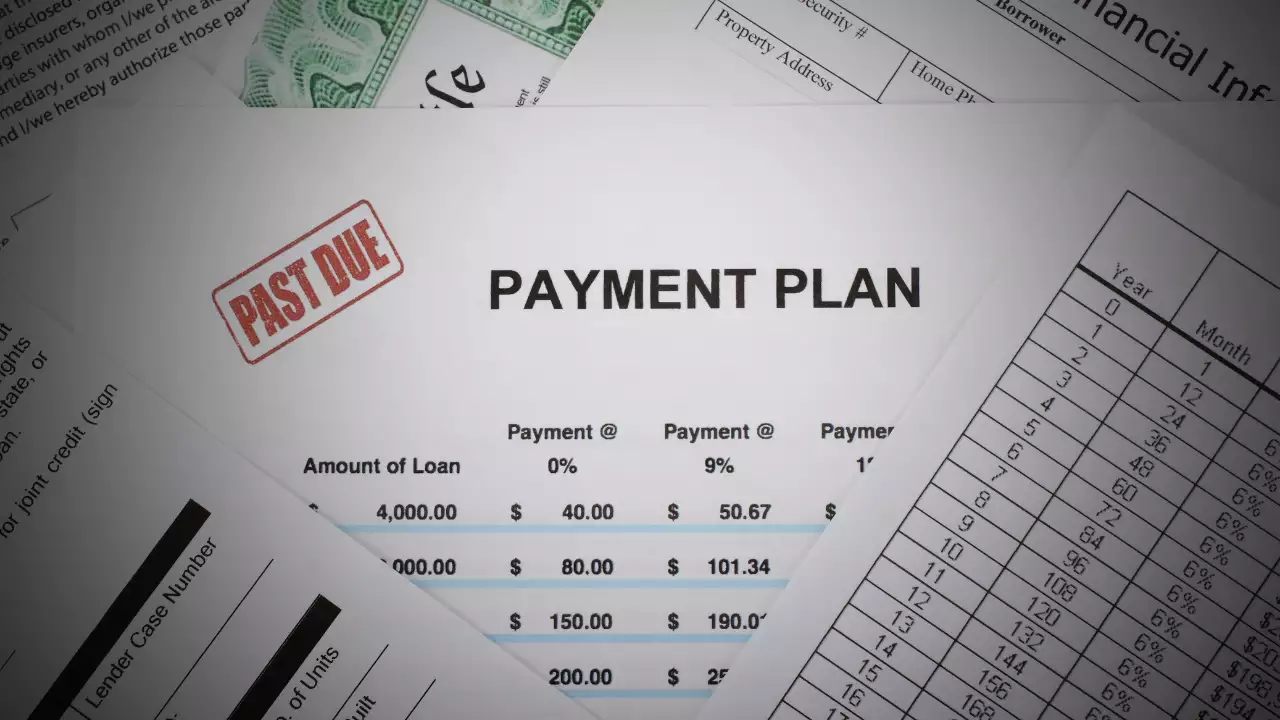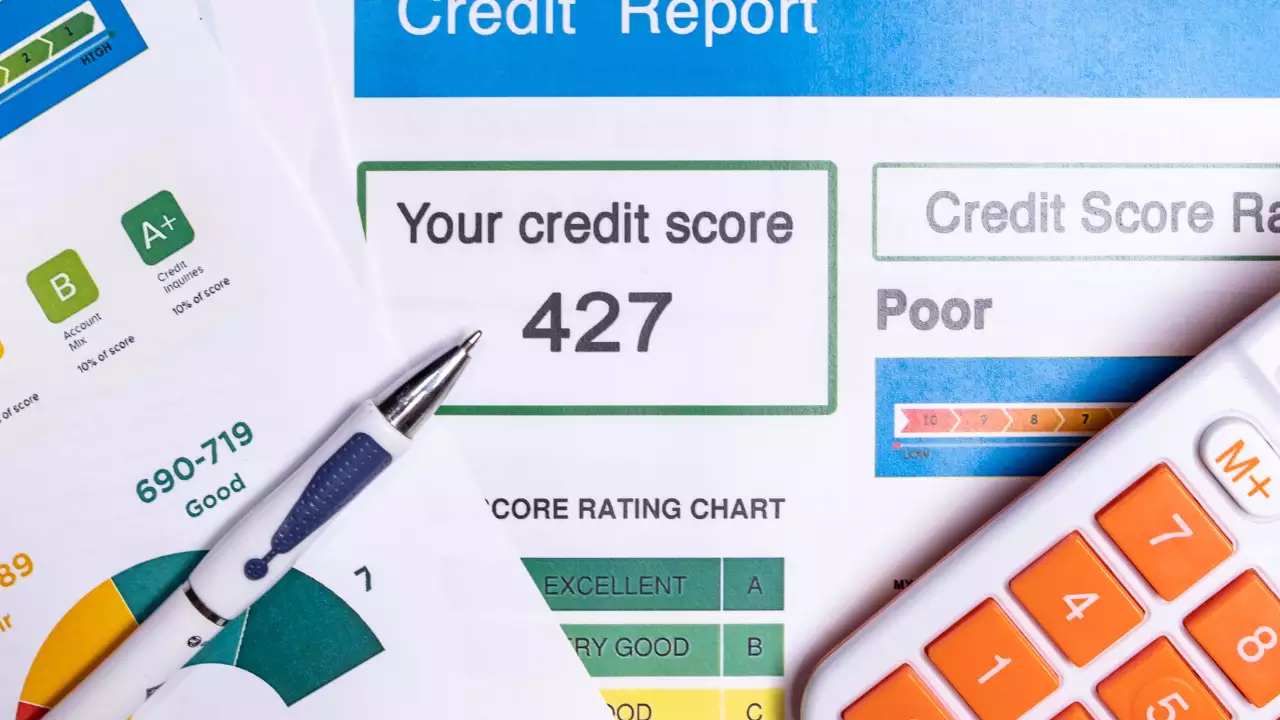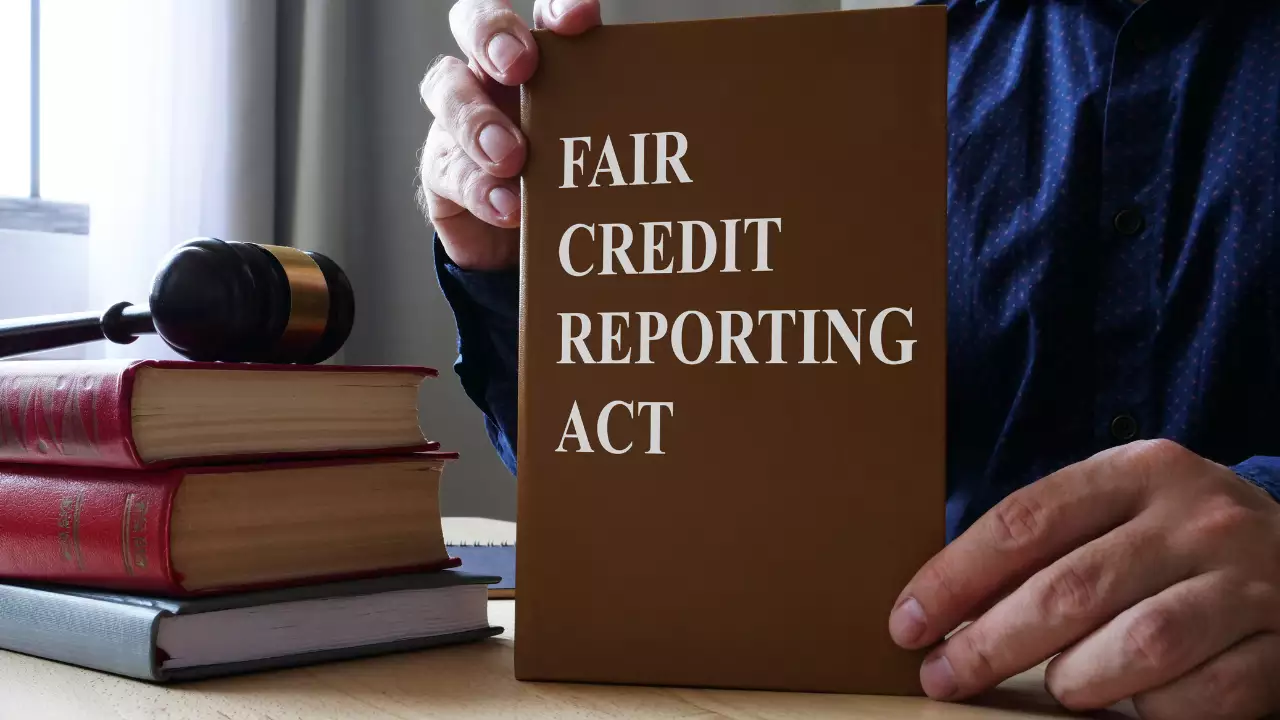Late payments can seriously damage your credit score. But how much damage can one late payment cause? And how long do the effects last? This article digs into the nitty-gritty details, analyzing just how a single late payment can undermine years of careful financial management.
As you read, consider these questions:
- If you have an excellent 800 credit score, could a single slip-up knock you down by 100 points or more?
- When do late payments start getting reported to the credit bureaus? Is there any grace period?
- How long will that one errant payment continue to haunt your credit report? Does the impact diminish over time?
Arm yourself with knowledge before a late payment bites you. Understanding the consequences in advance can help motivate you to pay on time, every time.
Delve into the article to learn just how fiercely you must guard your credit score —and what to do if you stumble. This clear-eyed guide may surprise you with facts you need to know. But first, let’s start with:
Understanding Credit Scores

A credit score is a three-digit number that depicts an individual’s creditworthiness and likelihood to repay debts. It is calculated based on the information in a person’s credit report, including their payment history, amounts owed, length of credit history, types of credit used, and new credit accounts opened.
Credit scores generally range from 300 to 850, with higher scores indicating better credit health.
A “good” credit score is typically above 700, while excellent scores are above 750. On the other hand, scores below 600 are considered poor.
Lenders, such as banks, credit card companies, and auto loan providers, use credit scores to evaluate the risk of lending money to a consumer. In general, the higher the credit score, the lower the perceived risk and the more likely the consumer will be approved for credit at better terms like lower interest rates.
Some key factors that influence credit scores include:
Payment History
This refers to whether bills like credit cards, auto loans, and mortgages have been paid on time in the past. Payment history makes up 35% of a FICO credit score calculation and is the most important factor. Missing payments or having late payments can significantly hurt scores.
Credit Utilization
This measures the ratio between total balances owed and total credit limits across all accounts. High balances relative to limits can lower scores. Credit utilization accounts for 30% of a FICO score.
Length of Credit History
In general, a longer history of responsible credit usage helps scores. This comprises 15% of a FICO score. New borrowers with little history tend to have lower scores.
Credit Mix
Having different types of credit, like credit cards, retail accounts, installment loans, and mortgages, can help demonstrate responsible usage across lending categories. However, this only makes up 10% of a FICO score.
New Credit
Opening many new credit accounts in a short period can indicate higher risk and hurt scores. This factor accounts for 10% of a FICO score calculation.
The Consequences of Late Payments

Here is a helpful table for readers summarizing the impact of late payments:
| Days Late | Impact |
|---|---|
| 1-29 days | No credit report impact, but late fees may apply |
| 30 days | Can get reported and appear on credit reports, starting score drop |
| 60 days | Status updated, score drop increases |
| 90 days | Delinquency escalates, maximum score drop |
| 150 days | Typically sent to collections |
| 7 years | Late payment removed from credit report |
Missing payments or paying bills late can have serious implications for a person’s credit score and overall financial health:
How Late Payments Are Defined and Reported
Most lenders do not report late payments to credit bureaus until an account becomes 30 days past due. Paying late fees may still apply even if an account is less than 30 days late, but there is typically no credit score impact if the balance is paid before reaching 30 days overdue.
Once an account becomes 30 days late, it can get reported to all three major credit bureaus – Equifax, Experian, and TransUnion.
This occurs when the lender sends updated account status information to the credit bureaus on a monthly basis. At this point, the late payment appears on the borrower’s credit report and can start to negatively impact their credit score.
Accounts that become 60, 90 days late or get sent to collections report the increased levels of delinquency as well. The deeper the delinquency, the worse it is for credit scores.
Immediate and Long-Term Effects on Credit Scores
The impact a late payment has on a credit score depends on the person’s current credit profile. In general, someone with an excellent credit score and positive history will see a greater point drop from a single late payment than someone with less-than-ideal credit.
For example, a one-time 30-day late payment could cause a 100 point drop in credit scores for someone with very good credit, but only a 50 point drop for someone with a low score. The higher the credit score, the more potential damage caused by missed payments.
In the long run, the impact of a late payment diminishes over time, especially if no additional late payments occur. Credit scoring models take into account how recent and frequent late payments are on a credit report. An isolated late payment from several years ago matters less than a recent missed payment.
However, the late payment can remain on a credit report for up to seven years. Only after dropping off the report does its impact disappear entirely. Until then, it continues weighing down credit scores.
Difference in Impact on High vs. Low Credit Scores
In general, people with high credit scores have the most to lose from late payments. They tend to have excellent payment histories, low balances, and long credit histories – prime profiles that late payments severely damage.
Because they start from an advantaged position, their scores simply have much farther to fall. On the other hand, people with low credit scores likely already have several negative marks like missed payments on their records.
One additional late payment stings but does not fundamentally alter their high-risk status in creditors’ eyes. The impact is less because their scores are already compromised from previous issues. For example, someone with an 800 credit score could experience a 100 point drop from a single 30-day late payment on one credit card.
But someone with a 600 score may only drop 50 points for the same late payment. This demonstrates why people with excellent credit should guard it closely – slipping up even once can undo years of careful credit management. For those rebuilding credit, on-time payments must remain an utmost priority.
The Timeline of Late Payment Reporting

The percentage of debt flowing into serious delinquency (90+ days past due) increased from 0.84% in Q2 2022 to 1.16% in Q2 2023 across mortgages, credit cards, auto loans, and other debt.
When late payments get reported and for how long they impact credit scores depends on specific reporting timelines:
When Late Payments Are Reported to Credit Bureaus
Creditors like credit card companies and auto lenders generally report accounts as late once they become 30 days past the due date. When the next monthly update gets sent to the credit bureaus, that late payment status gets noted on the borrower’s credit report.
Sometimes creditors wait until accounts become 60 days late before reporting. Payday lenders also tend to delay reporting for 60 days. However, the 30-day threshold is most common.
Mortgages and student loans typically wait until 90 days late before getting reported. But 30 days is still the standard for most other credit products.
The 30-Day Rule and Its Significance
The 30-day late payment reporting standard is defined by the Fair Credit Reporting Act (FCRA). The FCRA legally mandates that credit bureaus cannot report delinquencies under 30 days late in order to allow reasonable dispute periods.
Therefore, the 30-day mark represents a crucial cutoff point – it gives borrowers a one-month window to make payments before late statuses get formally reported on credit reports. However, late fees can still apply within that window.
Potential for Recovery If Payment Is Made Before Reporting
Paying an overdue bill before it reaches 30 days late can indeed allow avoidance of credit report damage. Since accounts less than 30 days late cannot get reported, bringing an account current during that window provides an opportunity to recover from a temporary slip-up.
However, repeat offenders will not evade credit impacts for long. If late payments become a pattern, sooner or later creditors will report them. Still, the 30-day policy does provide a valuable chance for consumers facing unusual short-term financial constraints.
Financial Implications of Late Payments

In addition to credit score impacts, late payments can seriously affect someone’s financial situation:
Late Fees and Additional Charges
Almost all lenders charge late fees, typically around $30 for the first late payment and up to $40 for subsequent late payments.
With high interest rates on credit cards, late fees can compound very quickly. If an account becomes 60 days late, the lender may also hit the borrower with a penalty APR, meaning interest rates soar even higher.
They may also suspend the account, triggering balance acceleration clauses that demand immediate repayment of the entire loan.
Compounding Financial Strain
All these penalties make it extremely difficult for borrowers already struggling with payments to catch up. The extra fees and interest charges all add up.
What started as a single unpaid bill can spiral into a desperate financial crisis across multiple accounts. Paying basic living expenses gets harder as more income must get diverted to mounting late fees.
Disproportionate Effect on Subprime Borrowers
Late payments disproportionately hurt subprime borrowers – those with low incomes or existing credit troubles. Since they already pay higher interest rates, the impact of additional fees and rate hikes is magnified.
Whereas prime borrowers have some buffer to absorb late fees, subprime consumers operate on razor-thin financial margins. They are least equipped to manage the consequences of late payments but suffer the most from their compounding damage.
This illustrates why timely payments must be an extremely high priority for rebuilding credit. Otherwise, late payments have potential to trigger a dangerous debt cycle.
Strategies to Prevent Late Payments
While no one is perfect, adopting certain habits can help avoid missed payments:

Tips for Managing Bills
- Use a calendar to carefully track all due dates for every credit account, loan, utility, rent, etc. Set reminders for every monthly bill.
- Maintain a budget that allocates bill payments first before discretionary spending. Automate payments through bank bill pay.
- Sign up for account alerts from lenders to get notified of approaching due dates. Review account statuses regularly.
Avoiding Late Payments
- Set aside a billing day every month to sit down and review due dates. Schedule payments at least a week before each due date.
- Build financial margins like an emergency fund that covers essential expenses for 3-6 months to handle unexpected crises.
- Leverage technology like automatic payments and account notifications so you never miss due dates.
Budgeting and Financial Planning
- Analyze monthly income and required expenses to create a realistic, balanced budget with room for bills.
- Look for opportunities to save on costs and reduce reliance on credit through thriftiness and lifestyle adjustments.
- Consult credit counseling services if struggling with excessive debt burdens. Seek assistance early before late payments occur.
Setting Up Automatic Payments and Reminders
- For every credit account, enroll in auto-pay to schedule recurring monthly payments. This ensures bills get handled even if forgotten.
- Sign up for late payment email, text and app notifications from each creditor and lender to receive due date reminders.
Rectifying Late Payments

No system is foolproof – even with diligence, an unexpected emergency could interfere with making payments on time. Here is what to do ASAP if faced with a late payment:
Steps to Take If a Payment Is Missed
- Contact lenders immediately, explain the situation, discuss options like waived late fees, and arrange a promise-to-pay. Transparency helps.
- Submit at least the minimum payment ASAP, even if the due date passed. This gets back on track and can limit credit reporting.
- Enroll in temporary hardship programs offered by many creditors to defer or lower payments for those going through financial constraints.
Disputing Inaccuracies on Credit Reports
If an account gets reported late inaccurately or the creditor agrees to remove a late payment, submit disputes to credit bureaus requesting immediate correction. Provide documentation to support disputes.
Here is a list of common website links for disputing inaccuracies on credit reports:
- AnnualCreditReport.com (Free annual credit reports)
https://www.annualcreditreport.com - Equifax Dispute Website
https://www.equifax.com/personal/credit-report-services/credit-dispute/ - Experian Dispute Website
https://www.experian.com/disputes/main.html - TransUnion Dispute Website
https://www.transunion.com/credit-disputes/dispute-your-credit - Consumer Financial Protection Bureau (Information on disputing errors)
https://www.consumerfinance.gov/ask-cfpb/how-do-i-dispute-an-error-on-my-credit-report-en-314/
The Role of Credit Counseling and Financial Advice
Non-profit credit counseling services provide free education on managing credit and can intervene with creditors when bills become unaffordable. They help create debt management plans and negotiate debt payoffs.
The Longevity of Late Payments on Credit Reports

The Fair Credit Reporting Act determines how long negative information remains on credit reports:
The Seven-Year Rule
Most adverse records like late payments and collections remain on credit reports for seven years from the date of first delinquency. However, bankruptcies can stay for up to 10 years.
For example, if an account shows 90 days late status starting January 2023, it will get removed by January 2030. Collections and charge-offs also follow the same seven-year timeline.
Diminishing Impact Over Time
While late payments stay on reports for seven years, their negative impact on credit scores gradually decreases over that period. Credit scoring models assign less weight to older late payments compared to new delinquencies.
Still, only after dropping off reports do late payments stop affecting credit scores completely. Until then, they continue suppressing scores as long as they appear in credit history.
Importance of Consistent On-Time Payments
The path to rebuilding credit requires diligent, on-time payment habits over years. As new positive records accumulate, they slowly offset the lingering damage from old late payments.
Even with late payments on reports, establishing a responsible usage pattern going forward helps improve credit scores over time. But it takes consistency and patience to see benefits.
Legal Aspects and Consumer Rights

Consumers have certain rights around credit reporting and late payments:
The Fair Credit Reporting Act (FCRA)
This regulates credit reporting practices and mandates the seven-year limit for reporting adverse information. It also entitles consumers to dispute errors on credit reports.
Accessing Free Credit Reports
The FCRA guarantees one free annual credit report from each bureau. Consumers should review reports for inaccuracies regarding late payments before disputing errors.
Understanding Soft vs. Hard Credit Inquiries
Soft inquiries from checking one’s own credit scores do not impact the scores. But hard inquiries from lenders when applying for credit get noted on credit reports and may modestly ding scores.
Conclusion
Maintaining responsible payment habits over time is crucial for financial and credit health. Just one late payment can undo years of careful credit management and jeopardize access to affordable credit.
While an isolated mistake may not permanently destroy credit, chronic late payments signal high risk. Even after they eventually drop off credit reports, the damage
Sources:
https://www.myfico.com/credit-education/credit-scores/payment-history
https://www.experian.com/blogs/ask-experian/credit-education/score-basics/what-affects-your-credit-scores/
https://www.nerdwallet.com/article/finance/late-bill-payment-reported
https://www.cnbc.com/select/how-long-late-payments-stay-on-credit-report/
https://www.invoicera.com/blog/financial-management/strategies-to-avoid-late-payments-from-customers/
https://fastercapital.com/startup-topic/Late-Payments-and-Credit-Scores.html
https://www.experian.com/blogs/ask-experian/credit-education/score-basics/understanding-credit-scores/
https://www.equifax.com/personal/education/credit-cards/articles/-/learn/when-late-credit-card-payments-post/
https://www.experian.com/blogs/ask-experian/how-long-past-due-remains/
https://www.cnbc.com/select/what-happens-when-you-miss-a-credit-card-payment/
https://www.myfico.com/credit-education/whats-in-your-credit-score
https://www.lendingtree.com/credit-repair/how-missed-or-late-payment-affects-credit/